What Is the Cost to Replace an HVAC System in 2025?
-
Pete Ortiz
- Last updated:
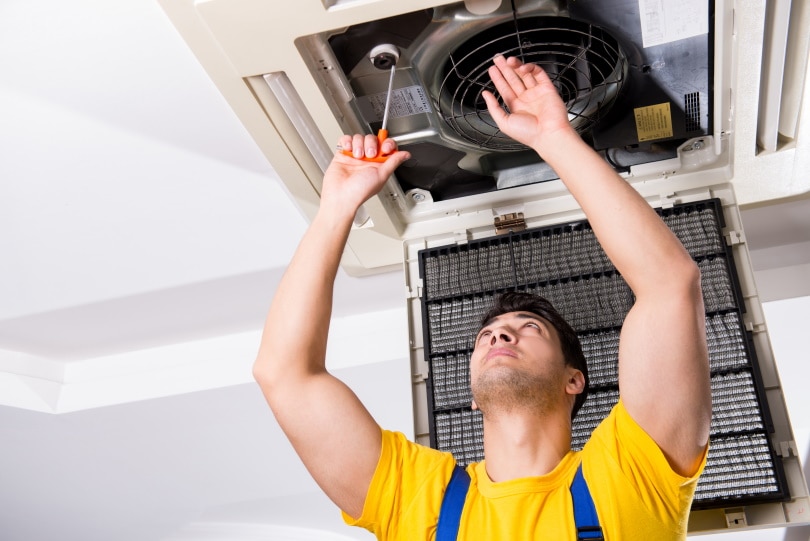
If your HVAC is starting to age, it could be apparent that it’s time to upgrade.
Rooms may take forever to cool, or you might hear strange noises whenever it kicks on. Maybe you’ve had repairs, only for the same issues to come back. You dread the eventual replacement, but it’s crucial to avoid the discomfort and expense of a failing system.
Given the costs involved in fixing HVAC units, choosing between replacement or repairs when yours breaks down can be stressful. To help you get the best value, we’ll detail the cost to replace an HVAC system today.
The Importance of Replacing an HVAC System
An HVAC system becomes inefficient over the years, taking more energy to produce sufficient cooling and heating and running the utility bills up in the process. If you notice your monthly electric or gas bills rising and your system engaging in longer cycles, it might be time to replace it.
Constant repairs can incur further costs. With an average HVAC repair costing close to $400 this year, the time and money involved in fixing ongoing issues can quickly make replacement a more cost-effective option.

Save Money with New Technology
If you’re replacing a decade-old system with a new model, your utility costs will likely be lower than ever. More advanced units can be up to 60% more efficient than older units, a difference that can have a massive impact on your immediate monthly savings. And by working with a knowledgeable service provider, you may end up with a more appropriate size and SEER for your home’s square footage and location, maximizing your HVAC system’s short-term and long-term value.
With innovations continuing to emerge, a lateral move from a furnace/air conditioner combo to a current model isn’t the only way to save money. The industry movement toward electric cooling and heating has made dual-function heat pumps more economical for many individuals. One study found that over 30% of American households would save money with a switch to a heat pump, while 70% of Americans could lower “emissions damages” by changing to the all-in-one solution.
How Much Does Replacing an HVAC System Cost?
According to HomeAdvisor, an HVAC system costs $7,000 to replace on average, with homeowners paying between $5,000 on the low end and up to $10,000 on the high end. You can calculate your estimated cost range at roughly $3–$6 per square foot of space in your home.
These price ranges refer to the removal and disposal of the old system and the cost of installing a replacement HVAC unit. A new system includes the interior and exterior A/C and furnace components, such as the evaporator, condenser, heat exchanger, burners, and blower. The HVAC equipment runs between $5,000–$9,000, while the labor to remove and install it costs $500–$2,500.
Find a HVAC, AC and duct specialist in your area, and get free, no-commitment estimates for your project.Consult a HEATING & COOLING expert

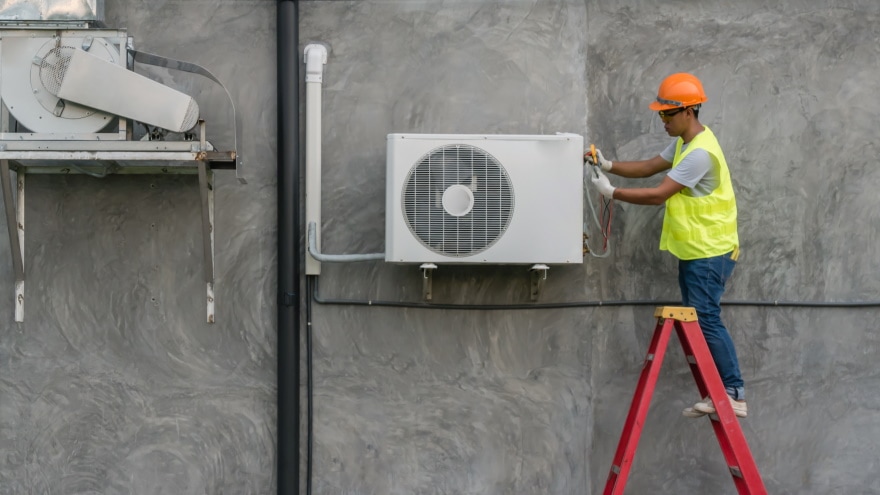
Several factors determine how much you can expect to pay for a replacement, such as:
- HVAC style (split system, heat pump, ductless)
- Home age and condition
- Local climate
- System size
- HVAC seasonal energy efficiency ratio (SEER)
- HVAC component brands
Ductwork can be a significant cost factor as well—if you have to replace ductwork, you will add roughly $1,500–$3,000 onto the total. You can estimate your ductwork replacement costs at $10–$20 per linear foot.
HVAC Component Costs
| Air conditioning unit | $2,000–$4,000 (3-ton unit) |
| Gas furnace | $2,600–$6,300 |
| Heat pump | $4,100–$7,200 |
| Boiler | $3,500–$7,700 |
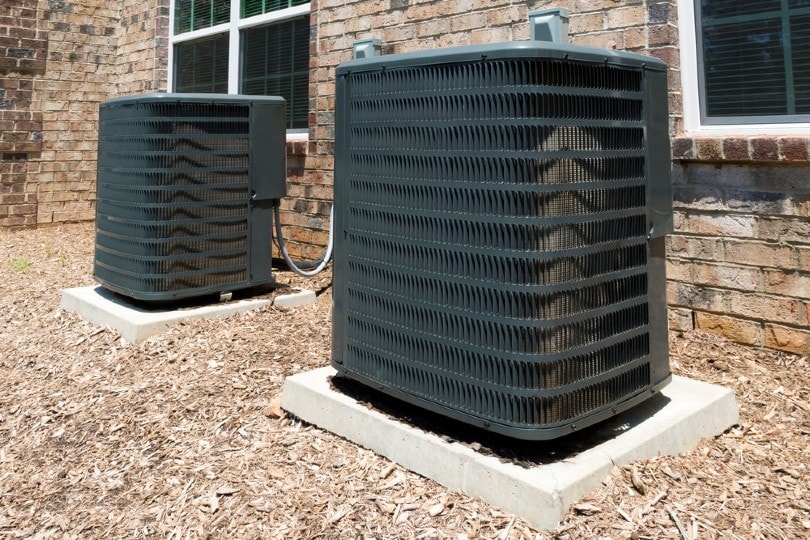
Additional Costs to Anticipate
Most of the cost variation in HVAC replacements is due to home size, the type and brand of the new unit, and its SEER. If the system is also difficult to access, labor becomes more time-consuming and thus more expensive.
There are additional costs to consider when replacing an HVAC system if you want the longest life, best performance, and most convenience from it. Smart home integration, for instance, is more expensive, with thermostats costing $125–$275 and additional climate zones running $2,000–$3,000 apiece. You may also need ductwork repairs or extra insulation in the building envelope to maximize your system’s efficiency.
Your location can determine some of your replacement costs as well. It’s crucial to research your municipality’s requirements around replacing a system.
Your local zoning board may require additional building permits and inspections to ensure the system is up to code, so you’ll have to factor in those costs. If they find a need to repair or augment anything else in the house, such as your plumbing, electrical system, or your home’s structural framing, those fixes will also add to the total.
How Often Should I Replace an HVAC System?
While there is no set expiration date on any HVAC system, you can expect one to last 15 to 20 years before it needs a replacement. Units over 10 years old lose performance, so you may benefit from lower utility costs by switching to a new system. Look for these signs that it’s time to upgrade to a more efficient unit:
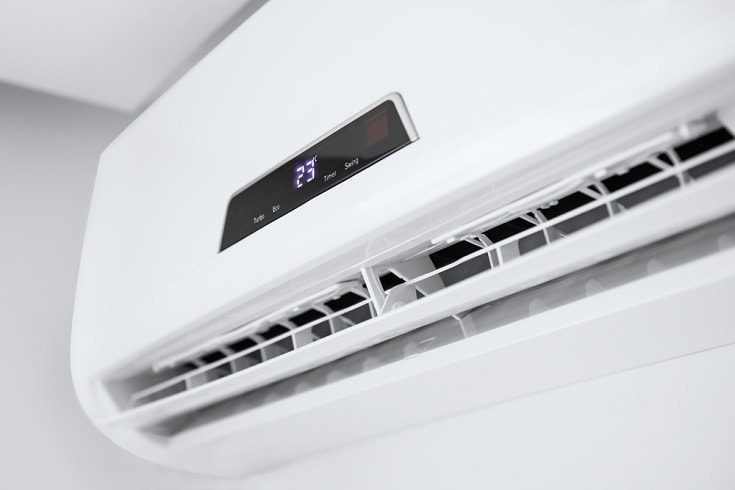
- Your home’s humidity and temperature are harder to control
- Utility bills are consistently high
- There’s more dust circulating in your home
- You notice odd noises coming from your equipment
High repair costs may warrant a replacement as well. A good rule of thumb to follow is that if a repair is at least half the cost to replace your system, you should skip the fix and opt for a brand new unit.
Does Insurance Cover HVAC System Replacements?
If your HVAC system is damaged, you may be able to submit a claim under your homeowner’s insurance plan. Insurance will pay for the repair or replacement of HVAC equipment that suffered damage from a covered peril, such as a fire or burst water pipe. It will not pay for replacement or repairs due to normal wear and tear, neglect, or accidental damage from human error.
It’s critical to check the extent of your coverage if you do suffer a loss from a natural disaster or another uncontrollable incident. Damage from floods or earthquakes, for example, are often not standard in an insurance policy, so you may still have to pay out of pocket if you have to replace a broken unit.
Insurance may not cover a malfunction in every situation, but you can also check your warranty for help with costs. Manufacturers’ limited warranties can range from 5 to 15 years, so you may get some assistance if a major component such as the compressor goes bad. And although federal tax credits ended in December 2021, you can often find excellent rebates on new systems through HVAC manufacturers and local utility companies.
See also: 31 Essential HVAC Tools List: Different Types & Their Uses
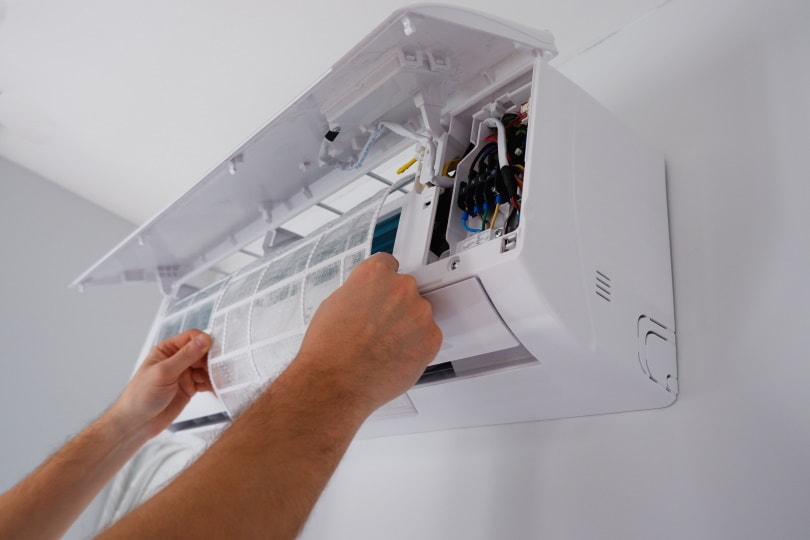
How to Take Care of Your HVAC System
The best way to ensure a long system life is to schedule annual maintenance on all your HVAC systems. That means setting up a professional A/C inspection in the spring and a furnace inspection in the fall.
Having inspections will keep your system working at optimal efficiency and allow you to address minor issues before they become expensive malfunctions. Many manufacturers also require annual checkups to keep their warranties intact.
Along with scheduling your seasonal inspections, here are some tips for DIY maintenance:
- Keep a 2’ area cleared around your outside condenser unit
- Change out filters every 6 months or when they become noticeably dirty
- Remove debris and grime from inside the unit and on the condenser fins at least once a year
- Clear mold and algae in condensate drip line with water and bleach
- Clean the evaporator coils with coil cleaner
Staying on top of regular maintenance will keep the repairs to a minimum and ensure your system cools and heats as effectively as possible. The result is a longer lifespan for your equipment, improved comfort in the home, and lower monthly utility bills.
See also: 10 HVAC Myths and Misconceptions – It’s Time to Stop Believing These!
Conclusion
HVAC systems last a long time, but they won’t run forever. Eventually, you’ll have to contend with the high cost of a full-blown replacement.
Replacing an HVAC system can be a headache. But by researching local providers and current technology, you can turn it into an exciting opportunity to make climate-controlling your home more convenient, less expensive, and better for the environment. When you work with a knowledgeable and trustworthy technician, you can be confident that you’re getting a perfect size, style, and efficiency rating for your needs.
Featured Image Credit: Elnur, Shutterstock
Contents


